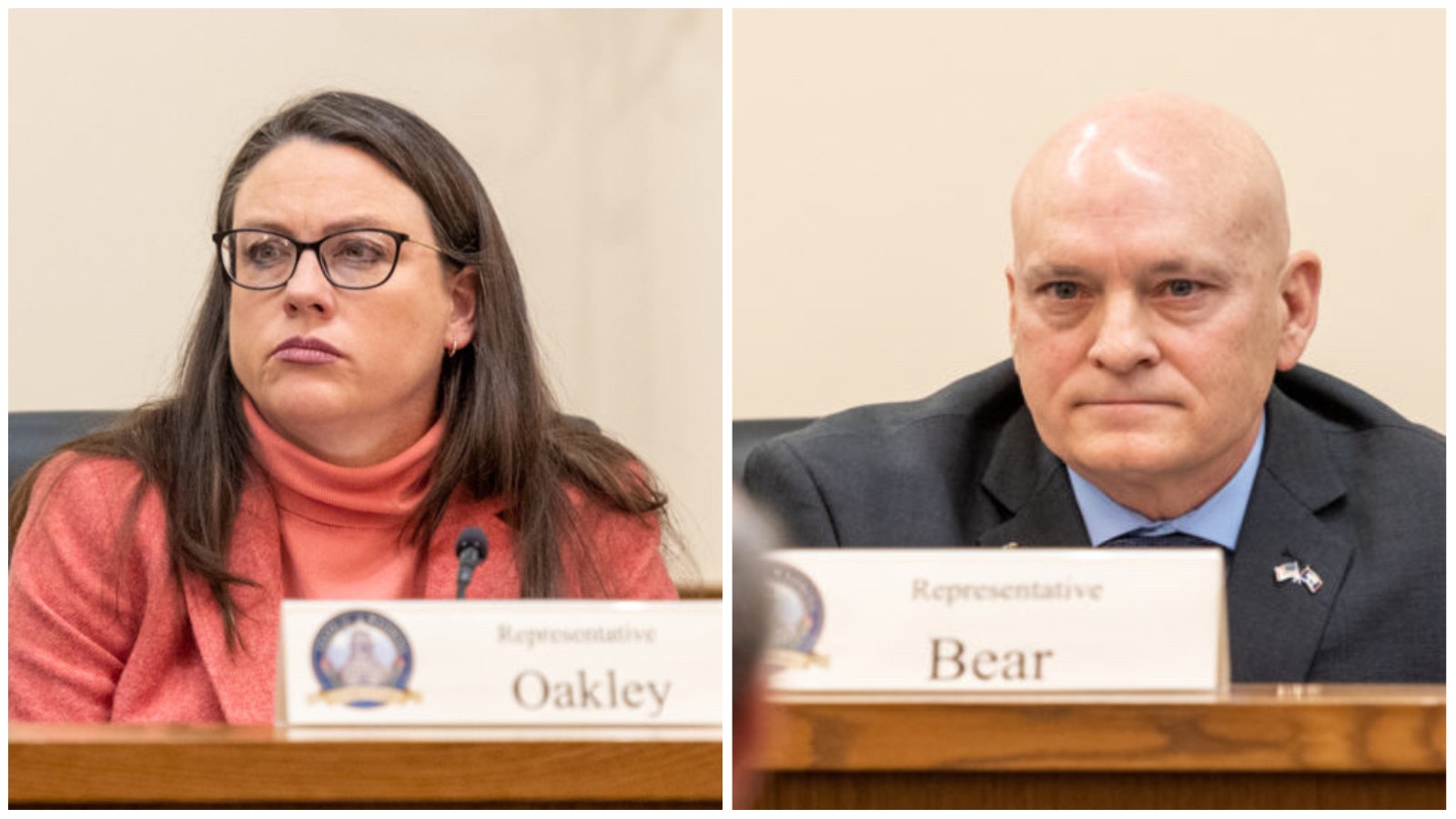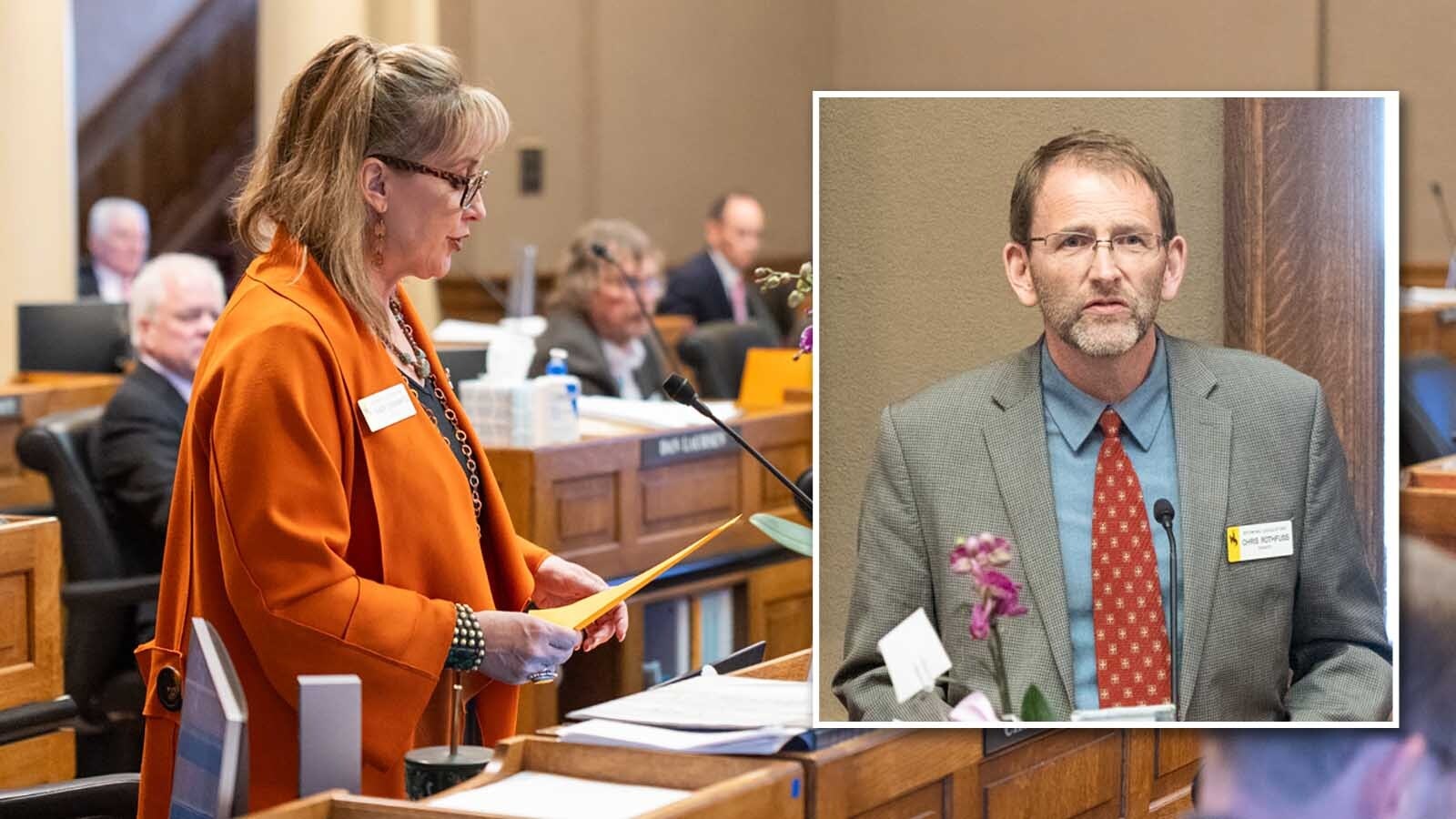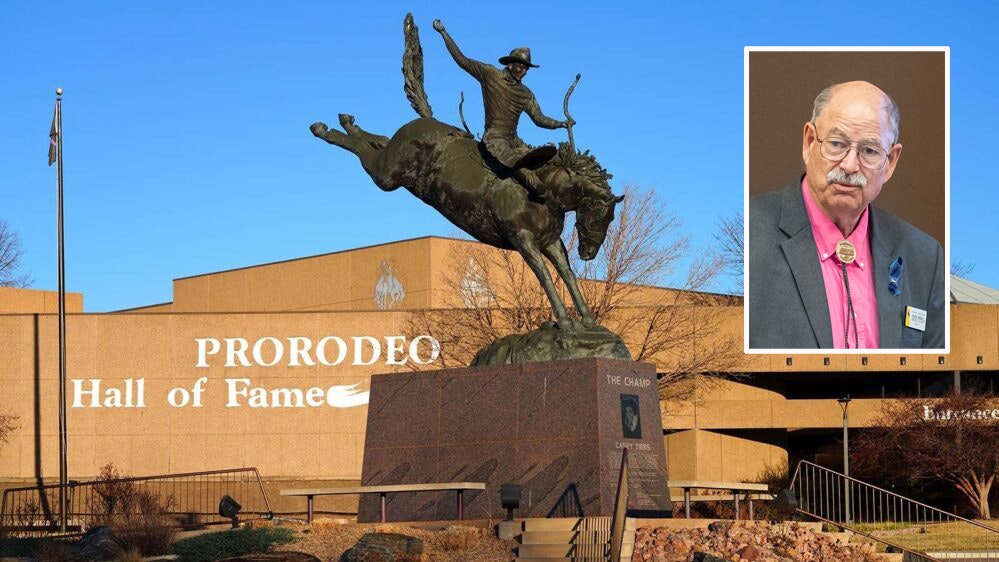An effort to expand Medicaid in Wyoming has cleared its first hurdle.
The House Revenue Committee passed House Bill 80 on Thursday. It’s the ninth bill in recent years Wyoming lawmakers have considered to expand Medicaid. The other eight attempts failed.
The “Medical Treatment Opportunity Act-Medicaid Reform” passed on a 6-3 vote.
In the first two years of expansion, an expected 19,000 new members would be covered under Medicaid in Wyoming, involving $22 million in state money and $177 million in federal funds over a two-year period.
If a $54 million incentive from the 2021 American Rescue Plan Act is considered, there would be a net $32 million savings to the state in the program’s first biennium, which could likely cover the costs of expansion for a second biennium, say proponents of HB 80.
“When you look at the budgets we have, it’s almost a pittance,” state Rep. Ember Oakley, R-Riverton, said about the cost in support of the bill.
Oakley said she has received hundreds of emails supporting the expansion.
Doesn’t Trust The Feds
Rep. John Bear, R-Gillette, said he has had a different response from his constituents.
He said he doesn’t trust the federal government to not put mandates on the state about how it can operate its expanded Medicaid program.
“I fear, as we discussed (about) the issue of abortion, that though we put it into our statute that we won’t be a part of the program if these things are mandated from the federal government,” he said. “I fear that the federal government will force us.”
He said depending on the federal government for money isn’t a sustainable plan.
“When we become dependent on these dollars, we are not very motivated to move away from these programs and put these federal dollars at risk, even if it’s distasteful what the federal government may force us to do,” Bear said.
Was Tied To Affordable Care Act
Medicaid expansion was originally mandatory under the Affordable Care Act, but a U.S. Supreme Court case shortly after rendered the decision whether to expand up to individual states.
Stefan Johansson, director of the Wyoming Department of Health, told the committee that once the state enters an expansion agreement with the federal government, it must comply with federal guidelines, but the state can always withdraw.
How It Works
Under current Medicaid rules in Wyoming, having a low income alone does not qualify someone for coverage.
There are other standards such as types of disabilities, age, status of children in relation to family income and the number of caretakers in a household that determine eligibility.
Traditional Medicaid coverage involves a 50% match between the state and federal government.
Under an expansion, the federal government pays 90% of the costs of the expanded population.
But recent legislation passed in Congress as part of the American Rescue Plan Act gives states that expand two years of a 5% increase to their broader Medicaid program.
‘Not All Unicorns And Rainbows’
Under the drafted legislation, if the federal match drops below 90% or the 5% incentive goes away, the expanded services will terminate in Wyoming.
Therefore, unless Congress changes its 5% match incentive, the expansion as currently written into the legislation would only last for two years in Wyoming. At that time, the legislature would have to consider new legislation to continue the expansion.
“This is a policy decision and there’s good discussion and important discussion on both sides of this issue,” said Johansson.
But Johanssen said if the match rate increased, Wyoming could theoretically increase services offered.
“But it’s not all unicorns and rainbows because that takes political will, both internally and with this body,” he said. “When you talk about offsets, even if it’s net positive, that can be felt as a cut somewhere else.”
Health Professionals Against It
Expanded Medicaid coverage is based purely on income and for adults making up to 138% of the federal poverty level.
John Mansell, a doctor at Campbell County Health and representative for the Wyoming Society of anesthesiologists, spoke against the legislation.
Mansell said Medicaid does not cover the cost of care, and that since 1993, the costs of Medicaid and Medicare have been consistently growing without corresponding raises in the rate of reimbursement.
“For us, who work every day in health care, it sort of baffles us why we’re going to double down on adding more people that don’t cover the cost of the care because the people who are still trying to pay for their own insurance in health care are going to suffer as a result,” he said.
Mansell said Medicaid pays about 86% of the costs of care. An expansion would lead to health care providers being able to care for fewer patients.
“Besides the pitiful reimbursement, Medicaid is very difficult to work with,” Rep. Sarah Penn, R-Riverton, a nurse practitioner, said when testifying on the bill.
Mansell believes the expansion would cover about 57,000 people due to a flood of new residents to the state drawn to Wyoming for its relatively low cost of living and lack of expanded Medicaid.
Mansell provided no statistical evidence behind the projection.
“You’re cannibalizing your own health care infrastructure in the state of Wyoming,” he said about HB 80.
To date, 40 states have expanded Medicaid in some form. Wyoming has not.
Worked In Montana
Republican Montana state Rep. Ed Buttrey, who was a key player in passing Medicaid expansion in his state in 2015, lobbied for the legislation on Thursday.
Rep. Steve Harshman, R-Casper, said he spoke with another legislator in Montana who had opposed expansion when it passed in 2015, then admitted it had saved access to rural health care in Montana.
Few Use The Most
Mansell said 90% of his patients on the Medicaid program don’t show up for routine checkups, but there are people in his county who go to the emergency room around 20-25 times a month.
He said around 10% of people use about 80% of Medicaid resources.
“If McDonald’s was forced to sell one-third of their clients’ hamburgers for a nickel, the lines at McDonald’s would be pretty long,” he said.
Not A Conservative Value
Bear said he fears legislation like Medicaid expansion will allow Wyoming to develop a culture similar to less conservative states.
“If we don’t say no now, I’m afraid there will be no difference in our society from those of New York and California,” he said.
He and Reps. Tomi Strock, R-Douglas, Tony Locke, R-Casper, cast the dissenting votes on the bill.
“Medicaid is a stage 4 terminal cancer, and we cannot be enticed to allow this in our state,” Penn said.
Window May Be Closing
Rep. Liz Storer, D-Jackson, said there are many things Wyoming is dependent on the federal government for such as road construction, and that the “time has come, and the people have spoken.”
Wyoming is coming to a critical juncture with its Medicaid coverage.
Johansson said the end of the federal public health emergency will likely end soon, even though President Joe Biden’s administration last week extended the COVID-19 public health emergency until April.
Johanssen said he anticipates disenrolling non-eligible Medicaid members in April. These members were given expanded coverage as a result of the pandemic.
If the legislation passes, it would likely go into effect in 2024.
Abortion
Wyoming Medicaid doesn’t cover abortions, and Johanssen said there are no plans to change this.
Deacon Mike Leman of the Diocese of Cheyenne, who is pro-life on abortion, spoke in favor of Medicaid expansion.
“When these questions keep coming up over and over again, like Medicaid expansion, the question of that, and abortion, I think we all need to come to it with open hearts and critical minds and ask ourselves, ‘Is it possible that I might have a blind spot here?’” he said.
Bear mentioned how a number of states have used Medicaid dollars to support abortion services.
He asked Leman if he trusts the federal government to withhold from mandating Medicaid money be used to support abortions.
“That is an ongoing threat,” Leman acknowledged
Transgender Issues
Bear questioned JJ Chen, a psychiatrist at Cheyenne Regional Medical Center, if Medicaid expansion would lead to affirmation supporting transgender surgical operations.
He successfully added an amendment to the bill that no state money be used for those health care issues.
Chen said he didn’t have an answer specifically, but expressed sympathy for transgender people.
“They are at our greatest risk of completing suicide,” he said.
Johansson said there are options to preclude transgender operations from the expansion, but said it becomes “squishy” when the issue is a medical necessity.
If And When
Bear passed an amendment to the bill to spend $3 million in federal money to market cancellation of the program when it expires in two years, if HB 80 passes.
Bear also proposed a motion to not market the expansion to Wyoming residents, which failed.
Try, Try Again
House Bill 80 is the ninth attempt to expand Medicaid in recent years.
Last year, an expansion bill was defeated 24-6 in the state Senate.
The closest a Medicaid expansion bill has come to passing was likely in 2021, when the “Medical Treatment Opportunity Act” passed the House.
It died when it was rejected by the Senate Labor Committee.





